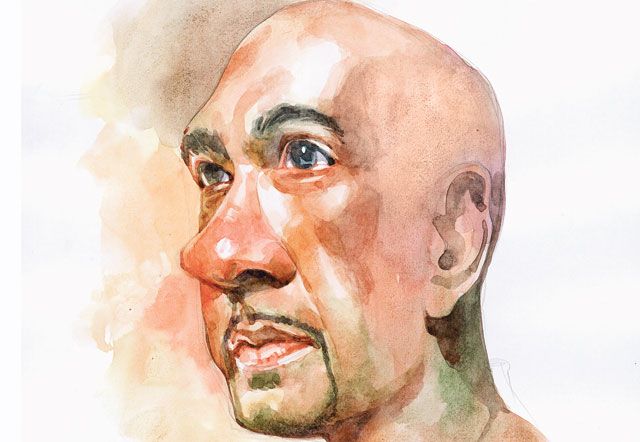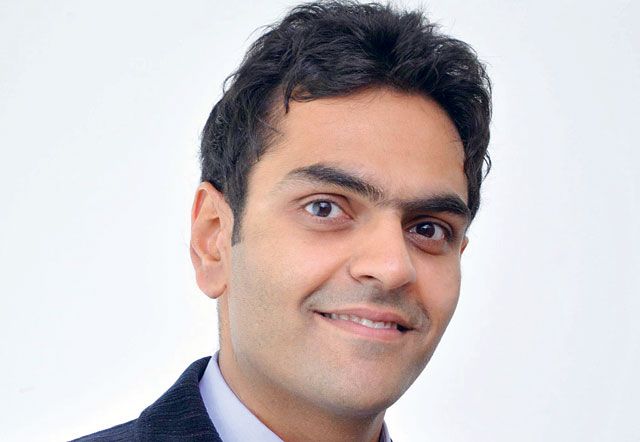Dubai: Most hair loss in a majority of people is due to underlying internal medical conditions, but use of desalinated water for washing hair is bad for a receding hairline, according to a noted trichologist.
Dr Akshay Batra, the first Indian expert on trichology, or the scientific study of hair and the scalp, said stress, the lifestyle expatriates tend to lead in this part of the world and improper nutrition are all contributing factors for hair loss.
"Hair loss is a slow process," said the doctor who operates out of the homeopathic clinic known as Dr Batra's in Dubai Healthcare City (DHCC). Losing 50 strands of hair a day is normal, he said, but anything beyond that needs to be looked at by a medical professional.
But he has good news for balding people: A new technique now allows for hair to be cloned in a lab, he said. "This is a much-awaited development in science as far as hair is concerned."
The technique involves removing a single strand of hair from the scalp and multiplying it into thousands of follicles that are reintroduced into the scalp. "Initial results are good. This means that no man will ever be bald again."
There are number of companies in the fray to hit the market first with the new technique, says Dr Batra. "It should be out within three years," he said.
Social implications
For the moment, though, his plans are centred on bringing to Dubai a Trichoscan, a machine which not only counts the strands of hair on the head but can apparently predict hair loss three months before it actually happens. The digital machine has been approved by the DHCC. "Baldness has huge social and emotional implications," said Dr Batra, who is the vice-president of the Trichological Society, London. "It should not be so, but people tend to suffer loss of self-esteem."
He believes that hair on the head always signified power. "A judge places a wig on his head before he takes the chair in court." Or conversely, monks shave their head when they renounce the world and seek celibacy, he pointed out.
He said diabetes thins the hair shaft by 50 per cent and a hair screening shows the condition five weeks before even a blood test. There are between 30 to 40 types of hair loss and out of that only one is due to genetic factors.
Hair will look different with every medical disorder, he said, such as in anaemia or thyroid problems. "It will show an internal condition which often goes unnoticed."
Dr Batra said most people have 150,000 strands of hairs on their scalp, which works out as 250 to 300 per square cm. "But this is for Asians," he said, as the hair count in Caucasians is much lower than that. Asian hair is thicker and dense. Caucasians on the other hand are more prone to male pattern baldness, he said.
The doctor discounted the notion that coconut oil helps hair grow as many people from Kerala in India believe. "It is a conditioner. If you have a dry scalp and dry hair, it is a good thing to apply," he said.
But he said that it has been proved scientifically that oiling and combing hair as most Indian mothers do for their daughters is a good bonding experience. "This is the time when they find time to chat with each other," said Dr Batra.
There are basically three options available to bald people, he said. Medication may seem the easiest but it also has its limitations. The second is camouflage, such as wigs. But this is too stark a change and many reject it after buying a wig. There is also a powder consisting of electro-magnetically charged hair particles. If you have a little bit of hair on scalp, you sprinkle this and the hair particles attach themselves to the existing hair, giving it an effect of fullness. "It washes off. Most models use it," he said.
Then there is a hair transplant option. But this can be done only on those with male pattern hair loss. It involves using hair from the back of the head to cover bald patches. This kind of intervention too has limitations since donor hair is often insufficient to patch up the entire bald area of the scalp. The replanted hair, however, continues to grow naturally. "You can cut it and shampoo it."
Hair loss facts
- India is the largest exporter of hair in the world. It is a $700-million (about Dh2.5-billion) industry
- Iron deficiency and lack of quality proteins are the commonest cause of hair loss among women
- In the UK, there is a higher divorce rate among balding men
- Shaving does not make hair grow faster.
- More younger people in the age group of 16 to 25 years are getting bald today
- High levels of humidity can adversely affect our hair as well as our skin














